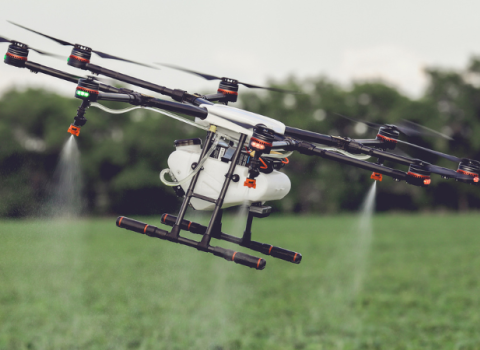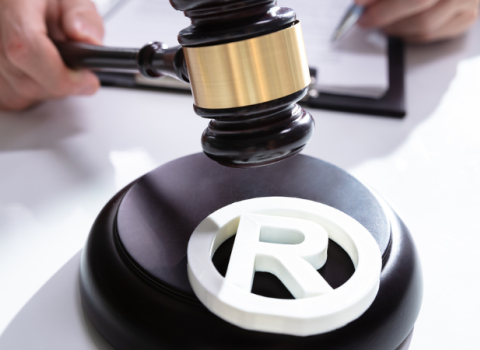
Technically, software per se can't be patented in Europe. However in reality, thousands of software patents have been granted both by the EPO itself and by national patent offices in the 34 countries that are members of the EPO (this includes all 27 European Union member states).
Patent Rulings
The EPO has been considering whether of not to refer the issue of software patenting to the EBoA for almost two years, ever since two related patent disputes in the UK highlighted inconsistencies in the application of the European Patent Convention – the rule book used by patent courts in all 34 member countries of the EPO (including all 27 EU member states).
In November 2006 Neal Macrossan, an Australian software developer, lost an appeal against the UK Patent Office's rejection of his patent application. He wanted patent protection for a method for producing documents "for use in the formation of a corporate entity using a data processing system".
On the same day the UK Court of Appeal threw out a challenge against a patent owned by IT company Aerotel: a computer program that created a new network infrastructure for a group of computers.
The three judges presiding over the cases considered the first a business method, and therefore unpatentable, while the second was seen as a patentable hardware change. Another UK judge called for a referral to the EPO's top appeals body to clarify the law concerning software patentability.
Alison Brimelow, new-broom president of the EPO referred the deeply contentious question about how to assess the patentability of software-related inventions to the enlarged board of appeal (EboA) last Friday, reversing a decision not to refer taken last year by her predecessor, Alain Pompidou.
Referrals to the EboA are rare and only happen in the most complex questions. For comparison, the other vexed issue currently being considered by the EboA is the question of whether human embryos can be patented.
The patentability of software has provoked equally fierce debate in Europe over the past ten years.In 2005 a proposed EU-wide law attempting to clarify the matter was scrapped because of the depth of divisions between the pro- and anti-patent lobbies.
In an interview with Science Business at the beginning of this year, shortly after taking over the top job in Munich, Brimelow said she wasn't ready to refer the software patents question to the EBoA, perhaps out of respect for her predecessor.
Now that she has, the reaction has been overwhelmingly positive.
"It will be a landmark case with a sizeable effect on the interpretation of patent law even beyond Europe," said Thomas Vinje, an intellectual property expert and partner at the law firm Clifford Chance.
Pieter Hintjens, a prominent campaigner against software patents during the political debate in 2005, and founder of software company Imatix Corp. welcomed Brimelow's decision.
"The EPO has resisted doing this for many years. In the past it didn't want to clamp down on software patent applications for economic reasons: the EPO makes money from patent applications and renewals. Brimelow at last is taking a healthier approach, prioritising the long term interests of society ahead of the short term financial ones," Hintjens said.
On the other side of the debate, Jonathan Zuck, president of the Association for Competitive Technology and an ardent fan of software patentability, also welcomed Brimelow's move. "The lack of clarity has frustrated the system in Europe," he said. Zuck is a software engineer by trade.
Hintjens and Vinje both contend that software is a special case, when it comes to innovation. Unlike in other fields such as pharmaceuticals where patents are a vital tool for fostering innovation, by ensuring a financial return for the inventors, software patents actually hinder innovation, they argue.
"Innovation in software rarely if ever sees a single major breakthrough; it comes about thanks to a string of small inventive steps made by many people all over the world. Everyone is building on what has gone before," Vinje said.
Zuck argues the exact opposite: "Software-related inventions are no different to any other kinds of inventions and should be treated exactly the same when it comes to granting patents," he said. He hopes the EBoA will come to the same conclusion.
Both he and Vinje said they hope the outcome of the referral will provide clearer definitions of what merits technical effect, inventiveness and what should be considered obvious. But while Vinje wants the bar to be set higher, Zuck wants that clarity applied across the board to all types of patent applications, keeping software in the same bag as all other inventions.
Microsoft declined to comment on the referral to the EboA but its position regarding software patents was spelled out clearly by Marshall Phelps, its corporate VP for IP policy and strategy at a conference in Florida earlier this month.
Within the next two years Microsoft will have built up a portfolio of 50,000 patents, Phelps told delegates. The company's patents strategy has two strands: first to protect its inventions and second, to establish a presence in markets, such as Europe, where there is a lot of software innovation.
Europe, Phelps said, likes to think that it is different because it says it does not grant software patents “but they can’t distinguish between hardware and software so the patents get issued anyway,” he is reported to have said by the specialist IP law publication Intellectual Asset Management magazine.
Speaking in January Brimelow was scathing about the US approach to patenting: "They have a liberal view about what can be patented: anything under the sun," she said.
Yet critics of the status quo in Europe argue that in reality it's almost as easy to acquire a European software patent as it is to get one stateside.
"It is hoped that the referral of these questions to the Enlarged Board of Appeal will lead to more clarity concerning the limits of patentability in this field," Brimelow wrote in her letter to the EBoA.
The referral will, she hopes, give patent examiners, applicants and the general public a better understanding of the law laid down in the European Patent Convention. And reading between the lines, she wants the referral to result in a clampdown on software patenting in Europe.





 A unique international forum for public research organisations and companies to connect their external engagement with strategic interests around their R&D system.
A unique international forum for public research organisations and companies to connect their external engagement with strategic interests around their R&D system.